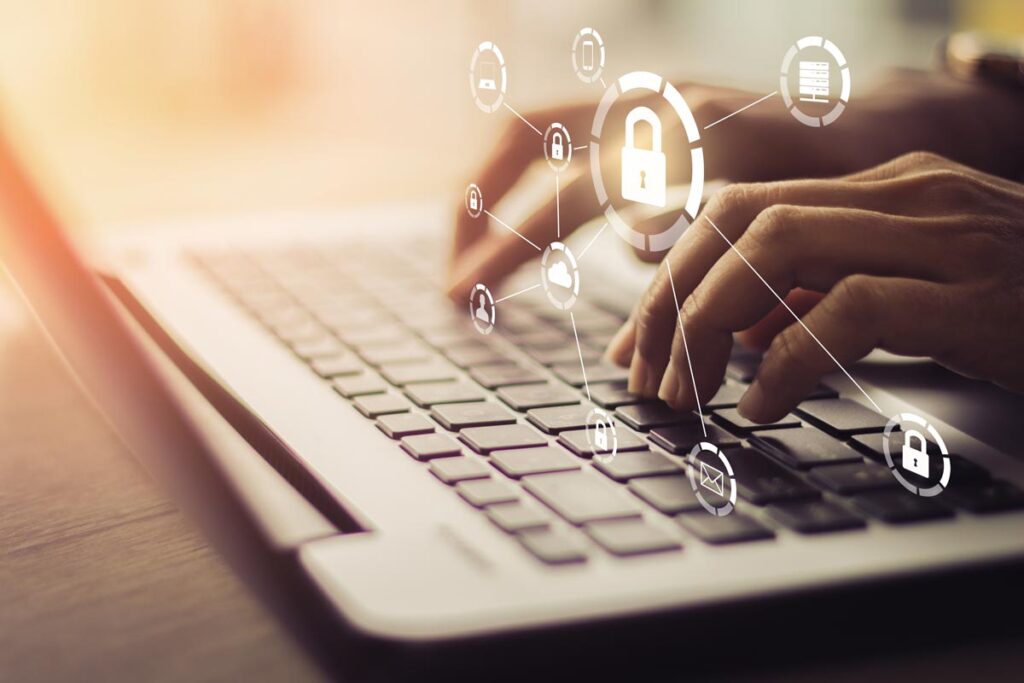
In today’s digitized world, Enterprise Resource Planning (ERP) systems are the backbone of business operations, seamlessly integrating various departments from finance to supply chain management. However, as these systems centralize sensitive information and customer data, they become prime targets for cyber-attacks.
The intersection of ERP and cyber security is crucial, with the integrity of ERP data security being paramount. This blog delves into essential tips for safeguarding your ERP system against the evolving landscape of cyber threats, ensuring your business’s operations remain uninterrupted and secure.
Understanding ERP and Its Importance in Cyber Security
What Is ERP in Cyber Security?
ERP (Enterprise Resource Planning) systems are comprehensive software platforms designed to manage and integrate essential business processes. In the context of cyber security, ERP signifies more than just operational efficiency; it represents a critical focal point for safeguarding sensitive data.
As ERP systems house an organization’s most valuable data, ensuring ERP system security is vital in preventing unauthorized access and protecting against data breaches.
The Consequences of Neglecting ERP Cyber Security
Neglecting ERP cyber security can have devastating effects. Security breaches not only lead to financial losses but can also damage a company’s reputation, erode customer trust, and even result in legal consequences.
Furthermore, the complex nature of ERP systems can make them difficult to secure, highlighting the importance of maintaining cyber security while implementing an ERP. Real-world examples, such as data leaks or ransomware attacks, underscore the catastrophic impact of weak ERP data security measures.
11 Essential Tips for Ensuring ERP Cyber Security
1. Regular Security Audits
Conducting regular security audits is crucial for identifying potential vulnerabilities within your ERP system. These audits help in understanding how data flows through your system, who has access to it, and where weaknesses might lie. A comprehensive security audit can shed light on necessary enhancements to keep your system secure against evolving cyber threats.
2. Incident Response Planning
Having a robust incident response plan in place is essential for quickly and effectively addressing security breaches should they occur. This plan should outline clear procedures for containment, eradication, and recovery, minimizing the impact on business operations.
Preparing for potential security breaches ensures that your organization can respond swiftly and efficiently, reducing downtime and protecting sensitive information.
3. Multi-Factor Authentication (MFA)
Implementing Multi-Factor Authentication (MFA) adds an extra layer of security, significantly reducing the risk of unauthorized access. MFA requires users to verify their identity using two or more validation methods, such as a password and a mobile confirmation.
This simple yet effective measure can prevent attackers from gaining access to your ERP data, even if they manage to obtain a user’s credentials.
4. Update and Patch Management
Keeping your ERP software and operating system up to date is vital in protecting against security vulnerabilities. Developers regularly release updates and patches to address known security issues.
By ensuring your system is always running the latest versions, you can protect against known vulnerabilities that cyber attackers might exploit.
5. Limit Access to Sensitive Data
One of the key strategies in safeguarding your ERP system is to rigorously control who can gain access to sensitive data. Implement role-based access controls (RBAC) to ensure that employees can only access the information necessary for their job functions.
This minimizes the risk of sensitive data falling into the wrong hands and reduces the potential impact of human error.
6. Employee Training to Reduce Human Error
Human error remains one of the largest security vulnerabilities in any organization.
Educating your staff about the importance of cyber security, recognizing phishing attempts, and following best practices can significantly reduce the risk of accidental breaches. Regular training sessions should be mandatory, emphasizing the critical role each employee plays in maintaining ERP data security.
7. Monitor for Suspicious Activity

Real-time monitoring of your ERP system for suspicious activity is essential for early detection of potential security breaches. Implementing advanced threat detection tools and services can alert your IT department to unusual patterns or attempts to gain unauthorized access, allowing for swift action to prevent or mitigate damage.
8. Secure Data Encryption
Encrypting ERP data, both at rest and in transit, is a crucial security measure. Encryption transforms your sensitive data into unreadable code for anyone without the decryption key, providing an additional layer of security against cyber-attacks that seek to intercept or exfiltrate your data.
9. Use Secure Connections
Ensuring that all connections to your ERP system are secure is another vital step in protecting your data. Utilize Virtual Private Networks (VPNs) or other secure connection methods to encrypt data transfers, preventing cyber attackers from gaining access to your information as it moves across networks.
10. Implement Strong Password Policies
Strong password policies are a simple yet effective defense against cyber-attacks. Enforce policies requiring complex passwords that must be changed regularly. Educate employees on the importance of using unique passwords for different systems to prevent a single breach from compromising multiple accounts.
11. Collaborate with Cyber Security Experts
Finally, partnering with cyber security experts can provide your organization with the specialized knowledge and skills needed to secure your ERP system effectively. These professionals can assist in conducting security audits, developing incident response plans, and staying ahead of the latest cyber security threats.
Implementing ERP Cyber Security Measures
Implementing these ERP cyber security measures requires a strategic approach and ongoing vigilance. It’s not just about setting up defenses but also about creating a culture of security awareness within your organization. Leadership must prioritize and continually invest in cyber security initiatives, understanding that the landscape of threats is always evolving.
The integration of ERP systems into your business operations presents unique challenges and opportunities. By adopting a proactive stance on cyber security, you can leverage the full power of your ERP solution without compromising the security of your business operations.
The Bottom Line
ERP systems are indispensable tools in the seamless execution of business operations, but they also present significant cyber security challenges. By implementing the essential tips outlined in this blog, businesses can safeguard their ERP systems from security breaches, unauthorized access, and other cyber threats.
Regular security audits, incident response planning, employee training, and collaboration with cyber security experts are just a few of the strategies that can protect sensitive information and ensure the resilience of your ERP system.
The journey to secure your ERP system is ongoing, involving continuous assessment, adaptation, and education. By prioritizing ERP cyber security, businesses can not only protect themselves from cyber threats but also gain a competitive edge through enhanced trust and reliability.
